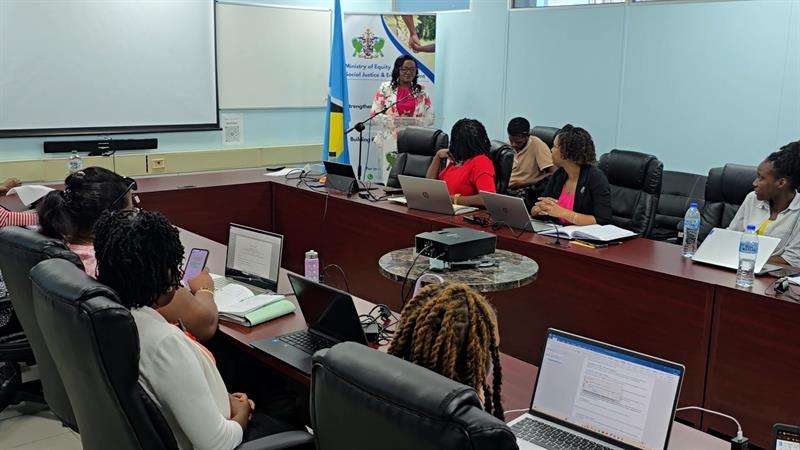Strengthening Social Protection Data Management in Saint Lucia through Targeted Workshops
The Ministry of Equity, Social Justice, and Empowerment in St. Lucia has embarked on a significant overhaul of its social protection program databases, aiming to enhance the effectiveness, transparency, and accuracy of its aid distribution. This initiative is driven by the need to refine data integrity and ensure that resources allocated under the Public Assistance Program (PAP) reach the intended beneficiaries. A key aspect of this effort involves rectifying historical data inconsistencies and duplication of records, issues that have been repeatedly flagged during annual audits conducted by the Human Capital Resilience Project (HCRP). This comprehensive review signifies a crucial step towards modernizing the Ministry’s social protection framework and improving its overall performance.
The review process includes a meticulous examination and refinement of the SL NET database, the 2023 PAP Re-certification records, and the complete PAP beneficiary Transfer & Payment list. Data analyst De Andre Albert has been instrumental in this process, working since November 2024 to correct identified errors and improve the overall quality of the data. The recent Public Assistance Programme Data Management Workshop marked a significant milestone in this undertaking, bringing together key stakeholders to discuss and implement strategies for improved data governance. This concentrated effort to enhance data quality is directly linked to securing financial reimbursements from the World Bank, a crucial component of sustaining the PAP.
A major challenge identified in the past audits has been the inclusion of ineligible individuals in the beneficiary list. Specifically, those with a welfare score above 79, categorized as “Welfare Group Three recipients,” do not qualify for assistance under the program’s guidelines. These inaccuracies have hampered the reimbursement process from the World Bank, highlighting the critical need for accurate data management. Furthermore, data inconsistencies have made it difficult to verify beneficiary eligibility during audits, further compounding the reimbursement challenges. The Ministry’s focused efforts to improve data quality aim to address these issues, ensuring greater accountability and maximizing the impact of the allocated funds.
The improvements in data quality lay the foundation for the development of a comprehensive data information system, the Social Protection Information System (SPIS). This system will serve as a centralized repository of beneficiary data, streamlining access and facilitating informed decision-making. Permanent Secretary Dr. Charmaine Hippolyte Emmanuel highlighted the transformative potential of SPIS, envisioning it as a centralized “library” of information that will enhance transparency, efficiency, and inter-agency collaboration. The readily accessible data will empower stakeholders to retrieve comprehensive information efficiently, ultimately optimizing service delivery and strengthening the impact of social protection programs.
The Ministry also conducted a workshop focusing on the SL NET 3.0 tool, a system mandated by the Cabinet since 2019. This session aimed to familiarize representatives from the Ministries of Health and Education with the system’s functionalities, including calculating welfare eligibility scores and best practices for data collection and cleaning. Currently utilized by the Ministry of Equity and the SSDF, the SL NET 3.0 tool is slated for broader implementation across other programs in 2025, further strengthening the overall social protection ecosystem. This demonstrates a commitment to leveraging technology to enhance data management and ensure the effectiveness of social assistance programs.
The Ministry of Equity’s commitment to improving data management extends beyond its internal operations. The Ministry is actively working to foster stronger collaboration across the Social Protection Systems, aiming to create a more integrated and efficient approach to social service delivery. This involves ensuring that data on social services is readily shared and accessible by both case workers and policymakers. This collaborative approach will lead to a more holistic understanding of the needs of beneficiaries and enable a more effective and targeted allocation of resources, ultimately maximizing the positive impact of the social protection programs. This comprehensive strategy underscores the Ministry’s dedication to modernizing its approach and ensuring the long-term sustainability and effectiveness of its social assistance initiatives.
Share this content:












Post Comment